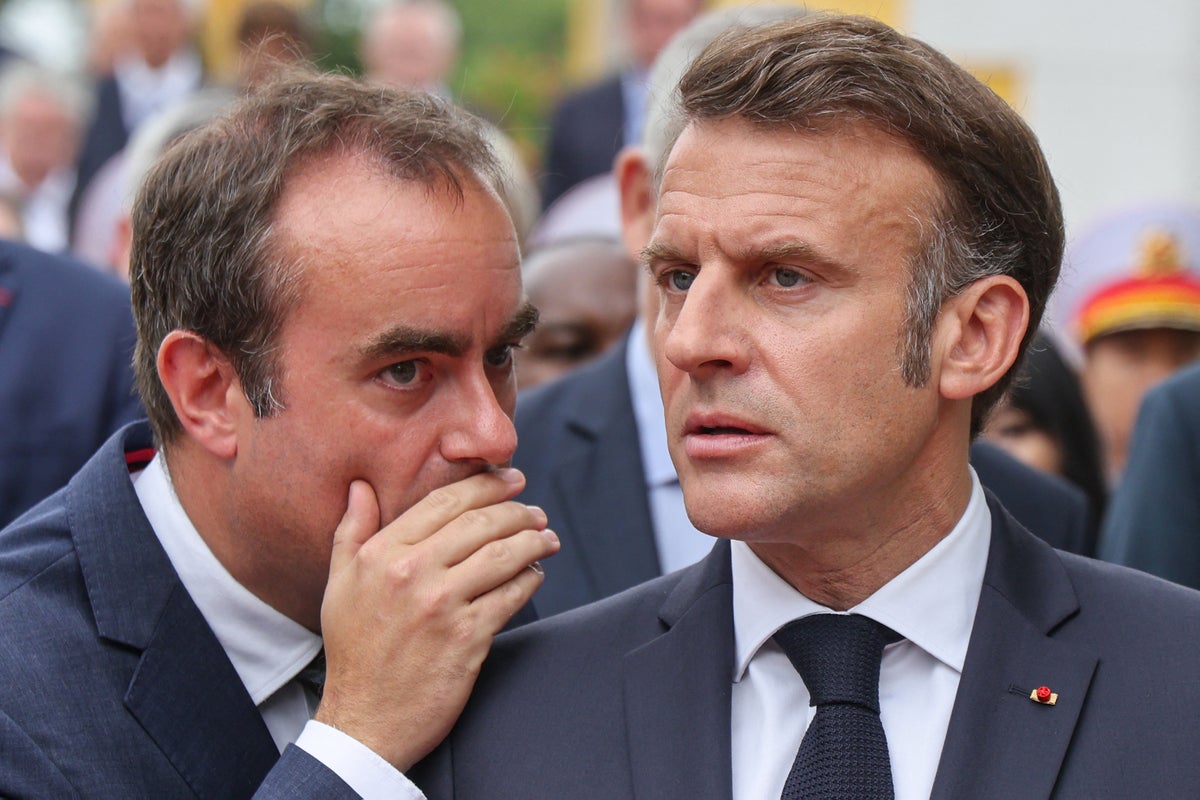French prime ministers these days have a shelf life equivalent to a football manager in the relegation zone. The incumbent, Sébastien Lecornu, in his second spell in the job, is hoping that suspending his debt-stricken nation’s wildly unpopular pension reforms, which would see the retirement age rise from 62 to 64, will allow his beleaguered administration to limp on.
The concession, which dismantles a key reform of French president Emmanuel Macron, has been offered in an attempt to secure the support of the socialists in a crucial vote on which the future of the government may depend. But it won’t come cheap. UBS, the Swiss bank, expects it to cost €400m (£350m) in 2026 alone, rising to €1.8bn in 2027. Lecornu has stated this “will need to be offset” by other savings. They will not be easy to find in the midst of a profound political crisis.
France has a debt-to-GDP ratio of around 113 per cent and an unsustainable budget deficit approaching 6 per cent. Numbers like that have led to comparisons with the likes of Greece and Italy, which were at the core of the EU’s last sovereign debt crisis. They would appear to be justified.
The EU requires member states to limit debt to 60 per cent of GDP while running a deficit of no more than 3 per cent. Repeatedly breaching those rules has put France in an “excessive debt procedure” requiring that a member state takes steps to reduce borrowing. Think of it as the EU’s fiscal naughty step.
It is by no means clear that Lecornu’s watered-down plan will fix the problem, even assuming he can get it through the French Parliament.
“We anticipate France’s debt-to-GDP ratio, already at 113 per cent in 2024, will deteriorate by an additional 2 to 3 percentage points per year in the medium term,” said UBS. It has urged clients to cut their holdings in French short-dated bonds. They won’t be alone in pulling out and a sell-off will only intensify the crisis by increasing French borrowing costs. Expect downgrades from the ever late to the party credit ratings agencies to follow.
The EU could ultimately impose a fine of up to 0.05 per cent of last year’s GDP if it agrees with UBS that Lecornu’s plans fail to pass muster. Trouble is that sort of penalty – topping out at as much as €1.5bn – would only serve to exacerbate the nation’s fiscal malady, and its political sickness to boot.
The potential impact on the bloc could be profound. France is one of its twin pillars along with Germany, whose own experience with debt and hyperinflation played a key role in the adoption of the strict rules governing debt. Today’s France is turning into a German banker’s worst nightmare.
Lecornu’s problem is that while he understands the gravity of the fiscal problem, some of his partners aren’t nearly so clear-eyed. Waiting in the wings are those on the extremes, both right and left. They are positively drooling at the prospect of election if this all blows up. It could all get a whole lot worse before it gets better.
At the core of the problem are the demographic issues that plague much of the western world: declining birth rates and rapidly ageing populations. There aren’t enough younger workers to support the pension promises and health needs of their grandparents.
I suspect Lecornu is well aware that kicking the can of pension reform down the road will only serve to send the political crisis to the same place. The dilemma for the EU, meanwhile, is that a failure to respond to this with the requisite sanctions will only encourage its other miscreants. After all, what’s good for the goose…
Those rubbing their hands together with glee on this side of the Channel might care to reflect that the EU as whole is by far the UK’s biggest trading partner and France, on an individual country basis, is its fifth biggest export market. Britain will not be immune from the potential contagion if Lecornu fails to nip the crisis in the bud and the disease spreads. Even if he does, confidence will inevitably be left severely rattled. The French economy is poised to struggle.
However, the dark clouds boiling and spitting over Paris, and in Brussels while we’re at it, could nonetheless come with a silver for Rachel Reeves.
Britain has its own fiscal problems, and its own populist parties on the left (the Greens) and the right (Reform) that are only too keen to exploit the government’s struggles in dealing with them.
However, unlike Lecornu, Britain’s prime minister Keir Starmer enjoys an enormous parliamentary majority. It isn’t bomb-proof, by any means. But Reeves could do worse than to quietly point out that her mulish insistence on sticking to her fiscal rules is what is protecting Britain from finding itself in the same sort of mess that France is currently embroiled in.
